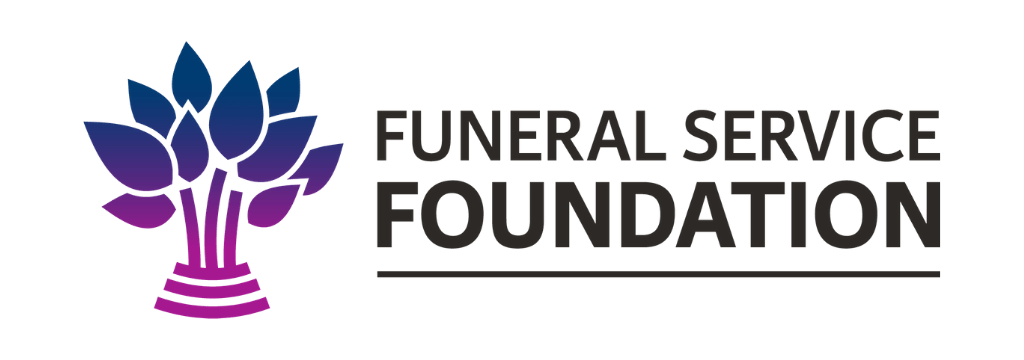Gestures, Expressions and Impressions: Their Importance to and Use In Your Business (Part 2 of 3 Week Series)
This Article Was Originally Published on myASD.com
Author’s Note
The Funeral Services Intelligences Series: Executive Report #2 is a three-part Report which examines the role of gestures, expressions, and impressions in the Funeral Services Profession.
In Part One of the Report, we defined gestures, expressions, and impressions as they relate to the Funeral Services Profession, and introduced six important “moments in time.” If you missed the first part, you can find it here: www.thegriefsupportnetwork.org/reports
In this second part of the Report, we will develop answers to important questions about gestures, expressions, and impressions, and consider the impact of appropriate words, products and gifts.
Here are a group of questions to ask yourself and your staff. The idea is to look closely at all of the actions you take as a company and recognize their potential or actual impact on those you serve or hope to serve. In short, what impressions do your current policies and actions create? Are they impressions that solidify your position with them? Be honest and assume nothing.
What are our company’s main gestures and expressions?
What are our major “moments in time?” (Do you agree with the six I’ve presented? Would you eliminate any? Would you add any? Be specific, drill down, dig down, and get granular).
What do we give, and what does it say about us explicitly (obvious) or implicitly (implied)?
List the times you give anything to your families or prospects and list what you give them. Is it a trinket, a token, or a treasure? We’ll define those terms shortly.
Not all communication is verbal. In fact many researchers feel that less than 10% of how we communicate is verbal or written words. With this in mind, what does the ambiance of your Funeral Home communicate? What does your tone of voice convey? What about your body language, eye contact, attention to your families or prospects when they are speaking? Does it show understanding, compassion, and interest?
Do any of your practices inadvertently create unintended consequences or negative impressions? Tradition plays a large part in many Funeral Services businesses, making it important to periodically question long held practices and beliefs. If you’re having problems or losing business that you once took for granted, look within for possible answers.
If you cannot answer some of these questions, ASK those whom you have successfully served; they will tell you. You WANT to know! What other questions can you add to this list? Remember, the goal is to project professional, caring gestures and expressions that create positive and lasting impressions. Filter everything through that lens when you’re looking at aligning your business practices.
Now that you have defined your gestures and expressions, examine each “moment in time” as it relates to the words you use and the items you choose to give.
Are your words consciously chosen, and said with a tone of compassion, understanding, and support? Are the items you give chosen for their immediate AND lasting impact?
Are the words you use focused on those you serve, or are they a thinly veiled sales pitch?
Are the products you give trinkets, tokens, or items that will be kept and treasured?
Trinkets:
A) Are poor copies placed in a non-descript folder.
B) Are inexpensive pamphlets with cursory information.
C) Are branded items bought by the hundreds with your contact information listed on them that in no way relates to the family you serve or hope to serve. These items reflect that it is about you and not about them. (Examples: key chains, pens, flashlights)
What impressions do you feel trinkets make?
Tokens:
A) Show forethought; they are organized, but minimally useful information.
B) Are booklets designed to go out over time to keep your name in front of the family more than they are designed to help the family recover. (There are NO stages of grief. Sending a quarterly booklet suggests that grief is linear and happens on a schedule, neither of which is true. Your booklet might arrive early or late, or it might be completely inappropriate if the recipient doesn’t experience those particular “emotions of grief” covered by that booklet.)
C) Are marginally helpful in assisting the family or person to recover from their loss.
What impressions do you feel tokens make?
Treasures:
A) Convey an immediate message, by their appearance and your manner of presentation, that YOU (the family/recipient) are important, and WE are honored and grateful that you chose us.
B) Indicate your understanding of the seriousness of their loss, your commitment to their recovery, and are an item that will remain a keepsake or heirloom gift.
C) Are specifically designed to be there when you can’t be to help your families recover. They help families remember you and make it easy, because of the overall experience they’ve had with you and the positive long lasting impressions you’ve made, to refer you to their friends and colleagues or to unhesitatingly use you again if the need arises.
What impressions do you feel treasures make?
There are layers of meaning with gestures and expressions, and the fallacy of self-projection often misleads us.
Hopefully, by this point, you see the importance and opportunity provided by the various “moments in time” that your profession affords you.
Have you begun to dissect your gestures and expressions, your words and your handouts, your tone, posture, attitude, and presentations?
Every aspect, every part, every detail is important because, collectively, they are your gestures and expressions that create those hoped-for positive and lasting impressions.
Also recognize that what we do tells more about us than what we say. Don’t believe that there is only one level of meaning to your actions, either. People read much into nuances. That is why consistency and being authentic are critically important.
If you think one way and act another, you’ll eventually fail because people will sense and see inconsistency which undermines the building of trust. Don’t act. Be the person who cares, who serves, and who has the welfare of others in mind. If you do that, your gestures and expressions will be felt and seen as caring and sincere.
There is one situation to look out for when analyzing your company’s gestures and expressions and that is “the fallacy of self-projection.” This happens when we extend our beliefs to others. We believe that since we feel a certain way, or accept something as true, then it must apply to or be believed by everyone. We all do it at some point. Just be careful about it.
This can be a tragic business flaw. Yes, there is the possibility that, due to your extensive experience in the Funeral Services Profession, you do have some insights. However, be careful about extending those insights outside the parameters within which they exist. And, especially be careful about generalizing to cover all generational cohorts.
Read, research, ask, listen, and consult to find the answers to questions that you face. Go on instincts only if you’re willing to accept the possibility that you are wrong and to bear the responsibility for the consequences if you are wrong.
There is a strong business reason to consider using outside services.
Why? Because it is often difficult and sometimes impossible to do a better job, all factors considered, than a person or company that specializes in the particular area under consideration. >p>Money should not be the sole criterion for evaluation. Sometimes, a higher apparent cost is more than offset by efficiencies, saved time, and a higher perceived value of your enhanced services, all of which could lead to more significant and longer lasting impressions.
When is the last time that you reviewed every aspect of your business and considered the question, “Does it make sense to do this action in-house, or can we hire someone to do an equal or better job for us that would save us time, money, or serve our families better?” Would it be more accurate to ask, “Have you ever…?”
You might ask, “How does this relate to our gestures and expressions? I thought that is what we’re dealing with in this Report.” It is what we’re dealing with, and if you can find others to help you improve your services or shorten response times or provide you with a treasure instead of a trinket or token, don’t you think that would help to create the long lasting positive impressions we’re after?




